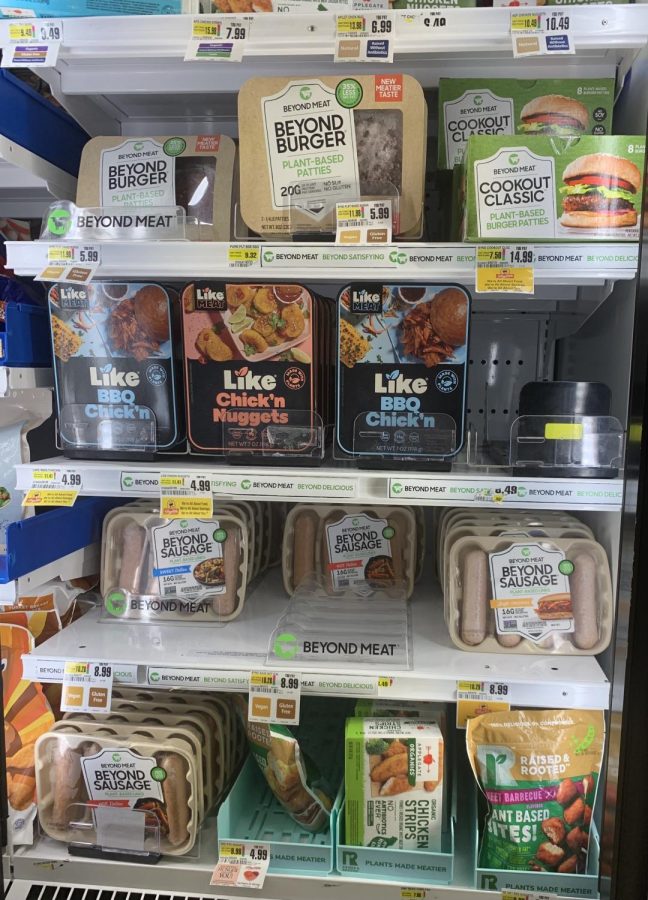Weighing the pros and cons of plant-based meat
Photo by Elaine Deignan
“Meatless meat” at the Shoprite in Garwood, N.J.
“Meatless meat” has soared in popularity over the years under the pretense that it is a healthier alternative to red meat, but is it truly as beneficial as advertisers claim? CEO of Bareburger, a burger chain whose menu features vegan meats, Euripides Pelekanos says that the nutritional value of vegan burgers is “not a black and white issue.”
According to motherjones.com, vegan meat was first invented in 1896 by John Harvey Kellogg, a member of the vegetarian Seventh-Day Adventists. More recently, the trend picked up speed with the founding of well-known brands, such as Beyond Meat and Impossible Foods, who claim that these plant-based meats are crucial to a healthier diet.
While the vegan options have been successful in helping people cut back on red meats, advertisers fail to mention the other, less nutritional aspects of the products. Nutritionist Alexandra Paetow said, “I think there’s definitely a little bit of a health halo or a marketing spin sometimes on the vegan meats that make them seem healthier than they are.”
According to The New York Times, a regular four-ounce beef patty has about 75 milligrams of sodium, compared to 370 milligrams of sodium in the Impossible Burger and 390 milligrams in the Beyond Burger. High amounts of salt are added to supplement the taste of real meat, although some argue that it only makes the product less healthy.
“The sodium levels, I think, are just way too high on these products. And I think people who are truly looking for a vegan or vegetarian diet will just opt out to have raw vegetables or cooked vegetables,” said Pelekanos. The vegan meats are also typically highly processed with added GMOs, all of which are not explicitly mentioned to consumers.
However, the health of plant-based meats can vary from product to product. Paetow said, “I don’t think, absolutely, that vegan meats are healthier than regular meats. And there’s a lot of variety in terms of different vegan meat products, and some are going to be really processed, some are going to be more whole foods-based.”
While some of the more popular brands have highly processed ingredients, a healthy plant-based meat is not impossible to find. There are smaller brands, such as Hilary’s, that make vegan meat from more whole foods.
Even if certain vegan meats are lacking in health benefits, it doesn’t mean that they’re not beneficial in other ways. Where vegan meat truly redeems itself is in environmental and animal welfare concerns. Michelle Jeffries, vegan of nine years, said, “I love the idea of a plant-based meat because I’ve always enjoyed eating meat, but I don’t like it at the cost of the lives of animals and the planet… Vegan meat allows me to eat meat that aligns with my morals.”
Restaurants that offer plant-based meat options, such as Bareburger, also promote inclusivity. Touching on the opening of his vegan-friendly restaurant, Pelekanos said that many who were the only vegans among their friends were happy to have a restaurant to go to that could accommodate everyone.
Both Pelekanos and Paetow recommended that people try vegan meat at least once to form an opinion of their own. Paetow said, “I don’t believe there are any foods that people should never have, especially if they are foods that they love.”

